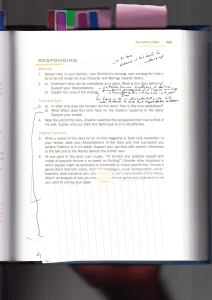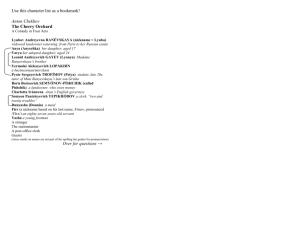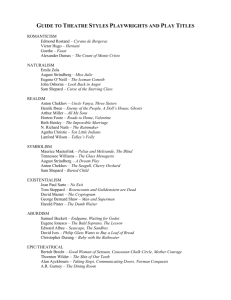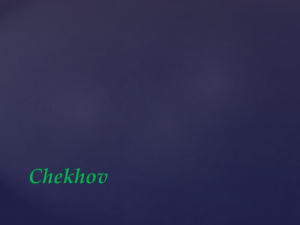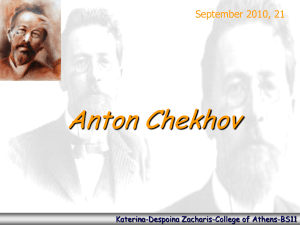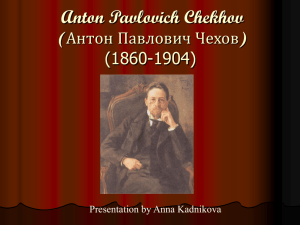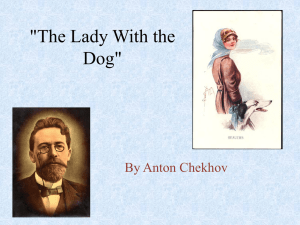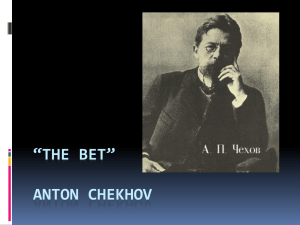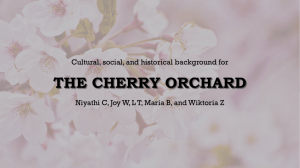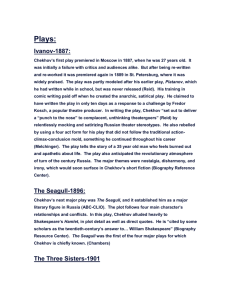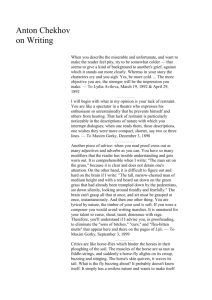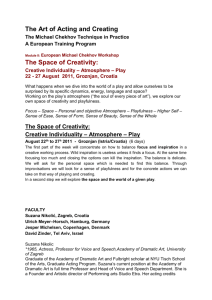The Cherry Orchard intro
advertisement
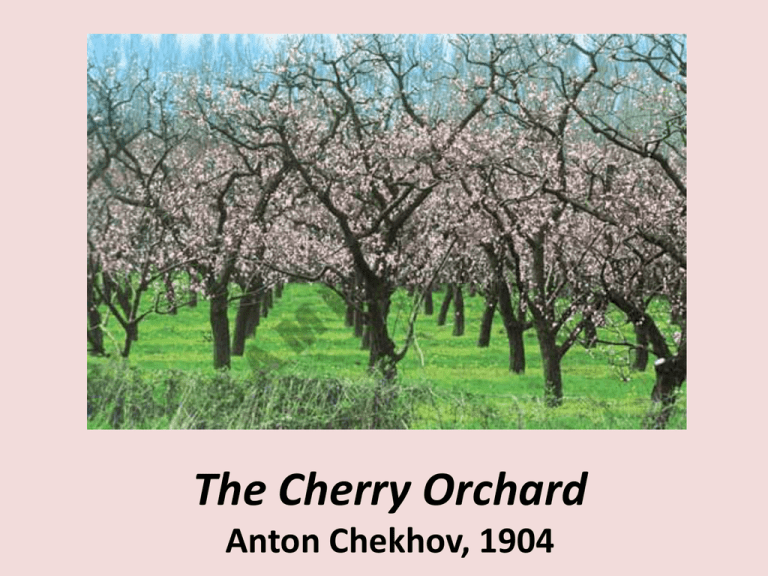
The Cherry Orchard Anton Chekhov, 1904 Anton Chekhov (Russia, 1860 – 1904) "Medicine is my lawful wife", he once said, "and literature is my mistress." • Son of a former serf (land-bound slave) – His father, Pavel Chekhov, was devoutly religious and physically abusive, a possible model for the many hypocritical characters in his works. – His mother, Yevgeniya, was an impressive and entertaining storyteller. • Physician and writer – best-known for short stories and drama – considered one of the world’s great masters of the short story • Four of his plays are considered classics: – The Seagull (1896) – Uncle Vanya (1899) – Three Sisters (1901) – The Cherry Orchard (1904) Chekhov’s style • Chekhov began writing satirical portraits of Muscovite street life, with a far harsher tone than his later work. • He views his characters with “a mixture of ridicule and affection” – most of them possess a rich combination of virtues and flaws. • His drama is known for its melding of comedy and tragedy. • Chekhov’s style is realism – in which his characters’ dialogue and actions are portrayed with a naturalism that sometimes makes them seem disorganized or trivial. Biographical connections to TCO • Chekhov’s own mother went bankrupt after being cheated by some builders she’d contracted. A lodger bought the house himself while pretending to help her. • Chekhov’s childhood home was sold off to pay its mortgage. • Chekhov was a devoted gardener and had his own cherry orchard, which was cut down by the man to whom he sold his home. • Chekhov was a vocal opponent of industrial deforestation. • Chekhov’s own father was a liberated serf. Setting: Turn-of-the-century Russia • Serfs liberated, 1861 – a period of social mobility for peasantry and aristocrats • Emergence of the Russian bourgeoisie (dachas) • Provincial Russia’s development for recreation and industry • Trofimov: early Bolshevikism? The Emancipation of the Serfs • Tzar Alexander II decreed that the serfs would be liberated in 1861. • Serfs were peasants living on the property of private landowners, 37.7% of the Russian population in 1861. • Serfs were essentially the property of the landowners, to whom they owed payment and labor. They were not permitted to leave the land on which they were born. • More than 23 million people received freedom, with the full rights of free citizens. Previously, serfs had not been able to marry without their masters’ consent, or own property or businesses. • The emancipation was considered disastrous by some. Why? How is this related to The Cherry Orchard? Major Literary Devices in TCO • Characterization: Chekhov’s naturalistic characterization of the complex personalities in his plays and stories is his claim to fame. How does he achieve it? • Symbolism: examples? • Genre: we’ll discuss this in more depth on Thursday, but the tragicomic elements of this Chekhovian comedy are important to consider. • Tone: how would you describe the tone Chekhov takes toward his characters? • Setting: the orchard itself, as well as the social climate in turn of the century Russia, plays a major role in the drama. Sources: • http://en.wikipedia.org/wiki/Anton_Chekhov • http://www.shmoop.com/cherry-orchard/ • http://www.dailyinfo.co.uk/reviews/theatre/C O2003.htm • http://www.gettyimages.com/detail/8209081 3/Hulton-Archive • http://en.wikipedia.org/wiki/Emancipation_of _the_serfs
